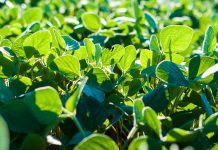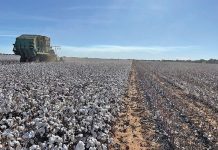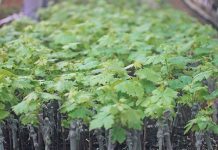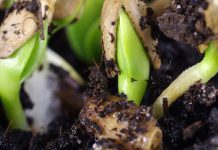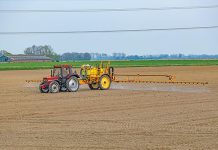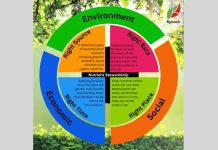Hlobi Yende, the young farmer transforming her family farm
Hlobi Yende is part of a new generation of young, energetic female farmers making waves in the agriculture sector. She is leading the charge by defying stereotypes and creating an inclusive space for women on farms.
Sunflower production: threatened by stink bugs and fungi
With continuous management of the insects that predate on sunflowers, significant success can be attained with this crop, which is suited to growing in the drier parts of South Africa, writes Zunel van Eeden.
Fighting the Russian wheat aphid to safeguard SA’s crop
Addressing the challenge of Russian wheat aphid in South Africa requires a multifaceted approach that combines host-plant resistance and biological, cultural and chemical control.
How permaculture is rejuvenating barren soil in the Klein Karoo
Kathryn Eybers and Ross Dwyer have transformed a degraded ostrich farm into an economically viable, vibrant healthy ecosystem.
Leafroll virus: a vast problem in SA’s vineyards
Leafroll virus is a destructive disease that shortens the lifespan of vineyards and lowers wine quality. Glenneis Kriel reports on ways to identify and prevent this disease.
How compost from Mpumalanga farmer’s bioreactor is boosting no-till crops
No-till crop cultivation is hardly a novel movement, yet learning curves are still steep as farmers navigate the intricacies of what makes healthy soil. Lindi Botha speaks to Hendrik Odendaal about how a change in his compost regime is making all the difference.
Sponsored
Ultra fertiliser blend drastically boosts soya yield
Soya bean production in South Africa has increased drastically over the last decade, reaching a record production area in 2022/23. During this season, the area planted to soya exceeded that of yellow maize.
Cotton, the ‘white gold’ of dryland crop production in SA
Cotton production in the North West has proved to be a viable alternative to maize and soya bean, with the profitability of cotton exceeding that of maize and soya bean despite extremely high input costs. Annelie Coleman attended a cotton information day in Schweizer-Reneke and compiled this report.
How to get a good start when planting vines
Vine improvement company Vititec’s client liaison manager, Reinier Louw, presented the dos and don’ts when establishing new vineyards at the Vine Workers’ Development Course.
Sponsored
Soil health: a multi-perspective conundrum
Soil health refers to the ongoing ability of soil to function as a crucial living ecosystem that supports the existence of plants, animals and humans.
Benefit from agrochemicals, but avoid the hazards!
Agrochemicals are often used as a scapegoat for agriculture’s impact on the environment, yet these chemicals do not by definition harm the environment, and they play an important part in food production, according to Dr Gerhard Verdoorn of CropLife South Africa.
Sponsored
Micronutrients are used in modern cropping systems
Agronomic advances, breeding, and biotechnology have increased yields to new heights. The intensive cultivation, increased nutrient demand, and farming practices can lead to multi-micronutrient deficiencies.







